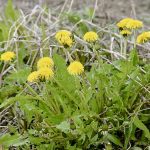A study led by researchers from the University of Turku in Finland has shown that a species of fungus that normally grows in the wild and kills insects can be […] Read more
Tag Archives biopesticides

Fungal-plant symbiosis a promising tool to boost crop resilience
Fungi deployed against pests also produce positive response from plant

Interest wanes in biopesticides, says scientist
A variety of roadblocks can impede commercialization of biological crop protection products, making them too expensive
Glacier FarmMedia – Biopesticides aren’t ready to compete with synthetic pesticides in broad scale agriculture, said a retired Agriculture and Agri-Food Canada scientist. Research into biopesticides has waned in the […] Read more

Biopesticides find a place within integrated pest management
They are another management tool for vegetable growers
Research is ramping up on how biopesticides fit into integrated pest and disease management in vegetable production, especially for organic operations. When managing any vegetable disease, it’s essential not to […] Read more


